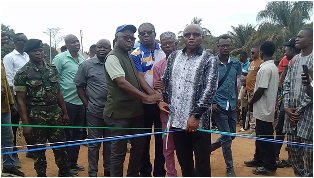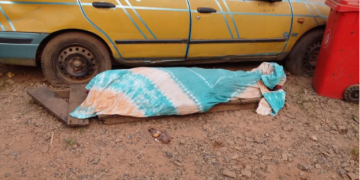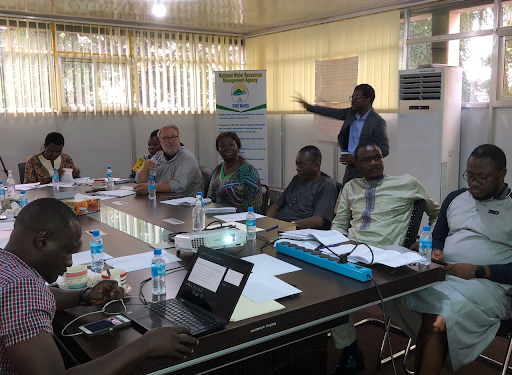Junisa Patrick Bangalie, Director General of the National Water Resources Management Agency (NWRMA) has said that digging bore hole and water well, storing water above the required amount and extracting water without a permit are crimes punishable by law.
He made this statement at a day’s training for journalists on the Agency’s responsibilities, management of untreated and unrefined water, processes of obtaining permit (licenses), and offenses and penalties outlined in the regulations, which was held on Friday, 26 August 2022. The Agency was created by an act of Parliament in 2017.
Director Bangalie, said the training is meant to explain the mandates of the agency and inform journalists about their mandates and what is contained in the regulations they have developed because most times journalists and individuals misunderstand their mandates and activities with other water management agencies, and for those journalists to educate the public about their mandates and about their regulations.
He explained that their role is to protect all unrefined water and water catchment areas in the country and to give permit to those who may want extract water from the ground for different uses. He added that they do not sell water, but regulate treated water and regulate the sanitary of water either for sale or for any other use, or regulate water companies like the Electricity and Water Regulatory Commission, or like Guma Valley Water Company (GVWC) and Sierra Leone Water Company (SALWACO) that provide or sell treated water, or like water factories, but said Guma and SALWACO and other water factories are liable to obtain licences from them to extract water for any purpose. Explaining the process, he said digging bore hole or water well requires permit and everyone with those facilities should register with the Agency.
He said failing to register or to obtain license from them will attract punitive measures including fines and bar your business from operating. He called on everyone with existing wells; bore holes, dams, or any storage facility to register with them to provide the necessary safety measures. So he said they have gathered journalists to help educate the public about the four regulations Parliament has approved, as an exercise of the powers conferred upon the Minister responsible for water resources by section 36 of the NWRMA Act of 2017.
These regulations are: the NWRMA (Dam Safety) Regulations, 2021; the NWRMA (Ground Water Development and Protection) Regulations, 2021, the NWRMA (Water Use and Catchment) Regulations, 2021; and the NWRMA (Water Pollution Control) Regulations 2021. He said these regulations give directives on how the process of water permit and licenses should be obtained by companies and even individuals for domestic purposes.
Desmond Pratt, a participant appreciated the training for the knowledge he has had about the Agency and other agencies regarding their roles and responsibilities.
NWRMA (Dam Safety) Regulations, section 35 (1) provides that, a person who constructs, alters, conducts, decommissions or operates an unlicensed dam contrary to the regulations commits an offence and is liable to a fine of not less than Le 5,000,000. (Old Leones) for every day the offence continues or a term of imprisonment not less than one year or to both the fine and imprisonment.
NWRMA (Ground Water Development and Protection) Regulations section 27 states that, where a person fails to comply with these regulations the Agency may seal off any premises of operation of the person and impose an administrative fine; subsection 4 states that a person who hires the services of an unlicensed contractor to construct a well commits an offence and is liable to a fine not less than Le 5,000,000. or to a term of imprisonment not less than one year or to both the fine and imprisonment; and s.5, failing to comply with any directive from the Agency commits an offence and is liable to a fine of not less than Le 5,000,000 for each day during which the offence continues or to a term of imprisonment not less than one year or to both the fine and imprisonment.
NWRMA (Water Use and Catchment) Regulations, provides that, pursuant to subsection (2) of section 28 of the Act the water abstracted by mechanical means and used only for domestic purposes where abstraction does not exceed 30 cubic meters (30m3) per month, subsistence agricultural water use for land areas not exceeding 5 hectares, and use of water resources for the purposes of fire fighting following are exempted from requiring a permit. However, section 29 (1) states that any person who uses water contrary to the regulations commits an offence and is liable to a fine of not less than Le 5,000,000 in respect of every day during which the offence continues or a term of imprisonment for not less than one year or both.
























